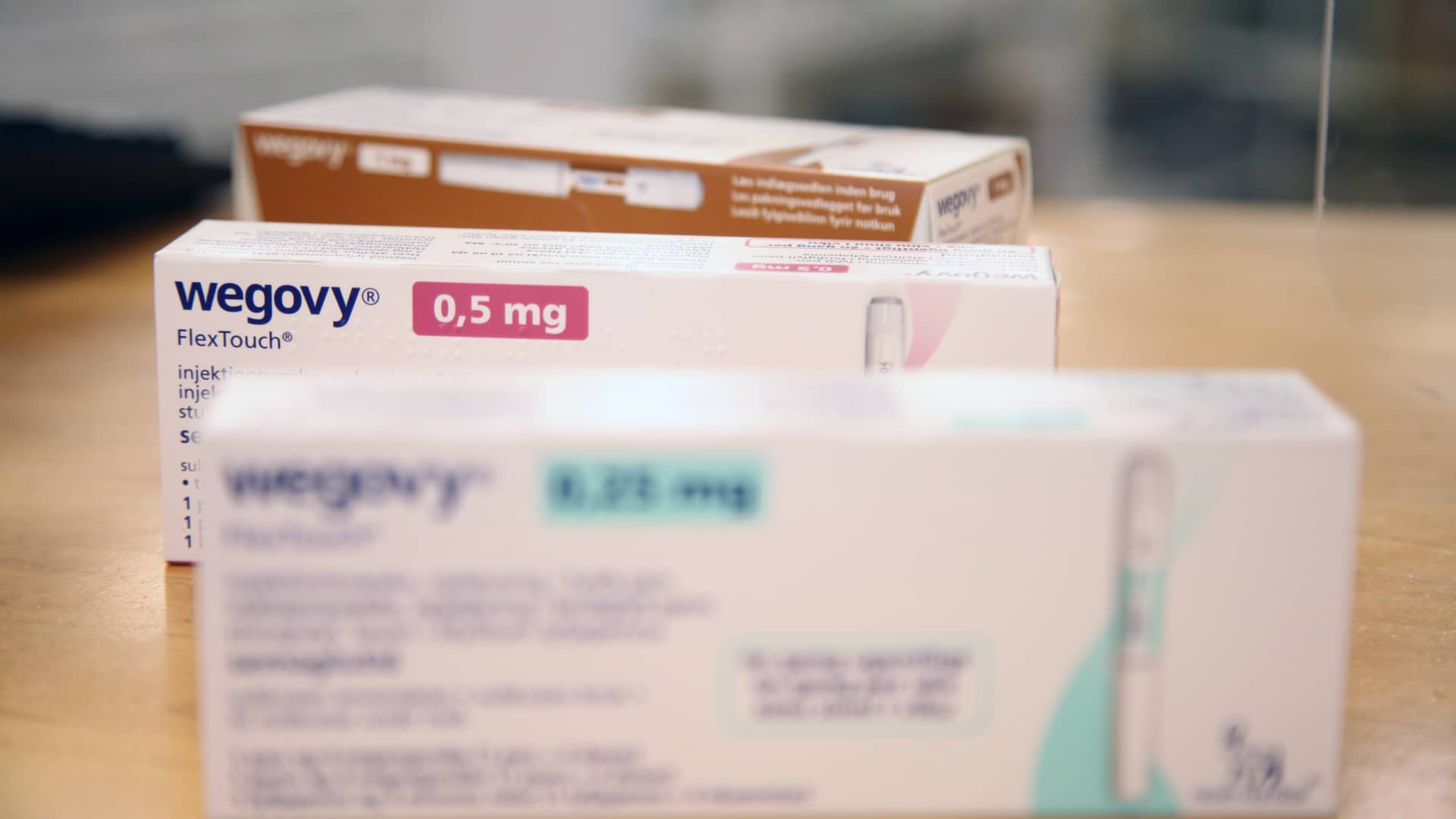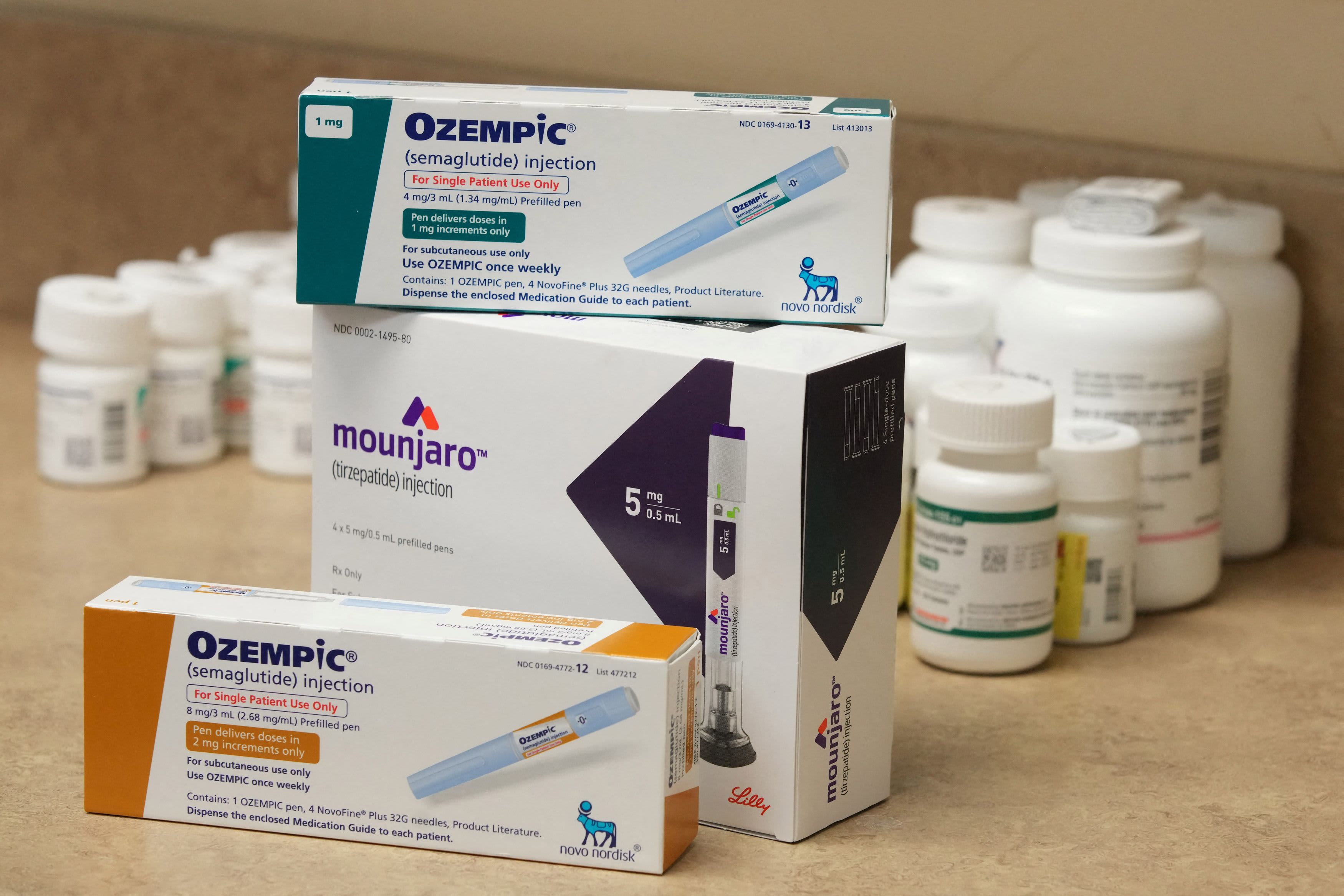
Packages of the weight-loss drug Wegovy from the pharmaceutical company Novo Nordisk lie on the sales counter in a Danish pharmacy.
Stefan Trumpf | Picture Alliance | Getty Images
U.K. health authorities on Wednesday said they are reviewing obesity and diabetes drugs like Novo Nordisk‘s Wegovy and Ozempic after some patients who took the treatments reported thoughts of suicide or self-harm.
The probe into potentially life-threatening side effects comes as the drugs skyrocket in popularity in the U.S. — and draw heightened investor interest — for helping people achieve dramatic weight loss over time.
The Medicines and Healthcare products Regulatory Agency, in a statement to CNBC, did not indicate when it expects to complete its review of safety data on the treatments. Authorities in the European Union launched a similar investigation on the drugs earlier this month.
MHRA said the review includes all obesity and diabetes drugs available in the U.K. That includes Ozempic and Wegovy, which contain the active ingredient semaglutide.
It also includes Novo Nordisk’s other weight loss drug Saxenda, which contains an ingredient called liraglutide. Other diabetes drugs like AstraZeneca‘s Bydureon, Eli Lilly‘s Trulicity and Sanofi‘s Lyxumia are also included in the probe.
Those drugs are all part of a class of drugs known as GLP-1 receptor agonists, which mimic a hormone produced in the gut to suppress a person’s appetite. GLP-1s can also help manage Type 2 diabetes because they encourage insulin release from the pancreas, lowering blood sugar levels.
“Patient safety is our top priority,” MHRA said in a statement to CNBC. “We will carefully consider all available evidence and communicate any further advice to patients and healthcare professionals as appropriate.”
Novo Nordisk said in a statement that it received a review request from the MHRA on Monday. The company said a “response will be provided within the requested timelines” of the review.
Sanofi said in a statement that it was aware of the review and is working with the MHRA. The company added that its pharmacovigilance monitoring system, which tracks adverse drug effects, has not identified any safety concerns associated with GLP-1s.
AstraZeneca and Eli Lilly did not immediately respond to a request for comment on MHRA’s review. Reuters first reported the review.
Between 2020 and July 6 this year, MHRA received five reports of suspected adverse drug reactions associated with “suicidal and self-injurious” behavior in patients who took Ozempic and Wegovy.
The agency also received 12 similar reports involving those who took Saxenda, or liraglutide, between 2010 and July 6.
But MHRA emphasized that those reports are not proof that the drugs caused those adverse reactions.
The U.S. prescribing information for Wegovy and Saxenda, both approved by the Food and Drug Administration, already recommends that health care providers monitor for “suicidal behavior and ideation.”
Saxenda’s information also noted that clinical trials in adults found nine of 3,300 people on the drug reported suicidal ideation. That’s compared with two of more than 1,900 people on a placebo. The prescribing information says “there was insufficient information to establish a causal relationship” between suicidal ideation and Saxenda.
There is no similar recommendation in the U.S. prescribing information for Ozempic and other GLP-1s for diabetes, which are typically used at lower doses.
If you are having suicidal thoughts, contact the Suicide & Crisis Lifeline in the U.S. at 988 or the Samaritans in the U.K. at 116 123.









